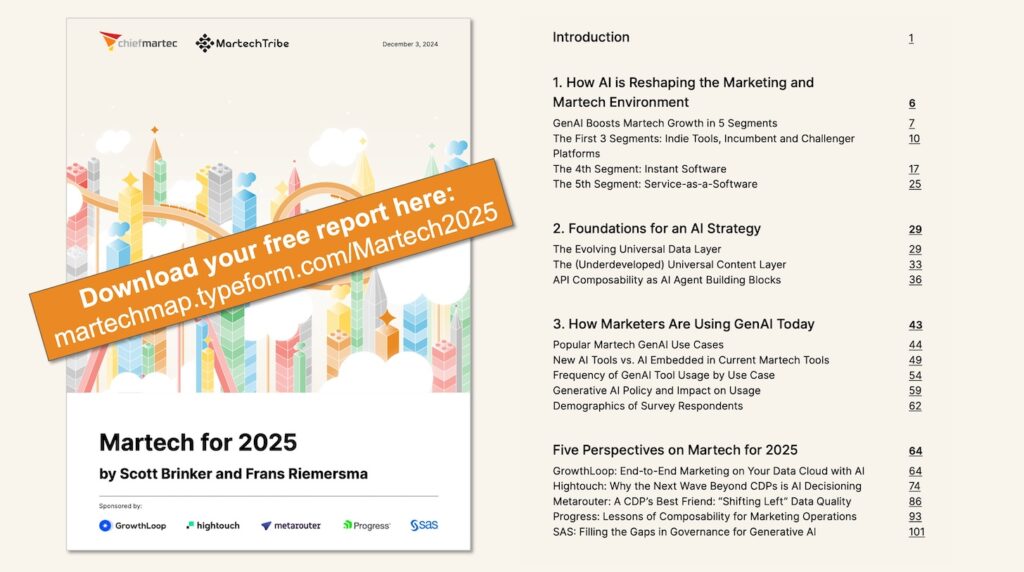Yesterday, I had the privilege of presenting at the FWD:B2B Marketing and Technology Conference organized by Godfrey, one of the world’s leading B2B marketing agencies, along with several of my heroes in digital marketing, including Michael Brenner and Paul Gillin.
My topic was “the epic collision of marketing and technology,” which is admittedly a hyperbolical title — the conference session equivalent of linkbait. But it is a collision, and in all seriousness, it is epic. The nature of marketing is being fundamentally transformed — and that’s the belief of a majority of marketers themselves, not just my opinion.
Godfrey plans to make a recording of my presentation available on YouTube in the weeks ahead. However, if you’d like to peek through my slide deck in the meantime, here it is:
If you’re new to my blog, you may also find some of my earlier posts on this subject of interest:
- 5 meta-trends in marketing (an earlier presentation)
- Rise of the marketing technologist
- Agile marketing for a world of constant change
- Art and science in marketing: meaning, truth, and money
- Why marketing software will never be like ERP



Great deck. I’m glad you mentioned the connection between marketing and devops. I highly recommend “The Phoenix Project” http://j.mp/1fqCJxY The book is focused on IT process, but I suspect many marketers will see the parallels. If you happen to be in technology marketing, then you should understand the devops movement anyway.
Thanks for the book recommendation, Abner. Reminds me of the book “The Goal.” I’ve added it to my reading list!
I come out of the enterprise software development space but am now in marketing, the idea of agile marketing is really intriguing. I was wondering how the analytics plays into influencing the short development cycles. Sometime a longer period are needed to see a good set of data that is meaningful enough to influence direction. Do you worry about changing tactics to quickly?
I think the optionality that you get with agile methodologies is what’s important: at the beginning of each sprint (short cycle), you have the option of adjusting your priorities.
However, that doesn’t mean that you HAVE to change your priorities. You should make that decision based on the latest, valid information you have — and, indeed, some programs may take some time before their resulting analytics are statistically significant. A good “product owner” (marketing manager?) will balance consistency in the vision/approach with the right amount of responsiveness/adaption to new information.